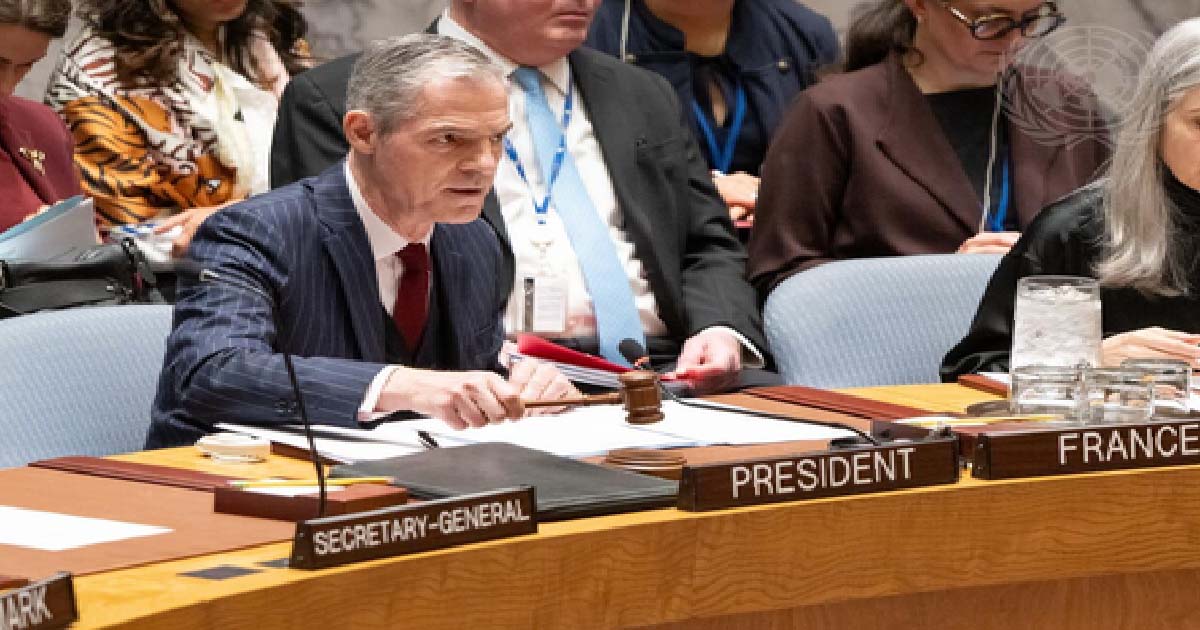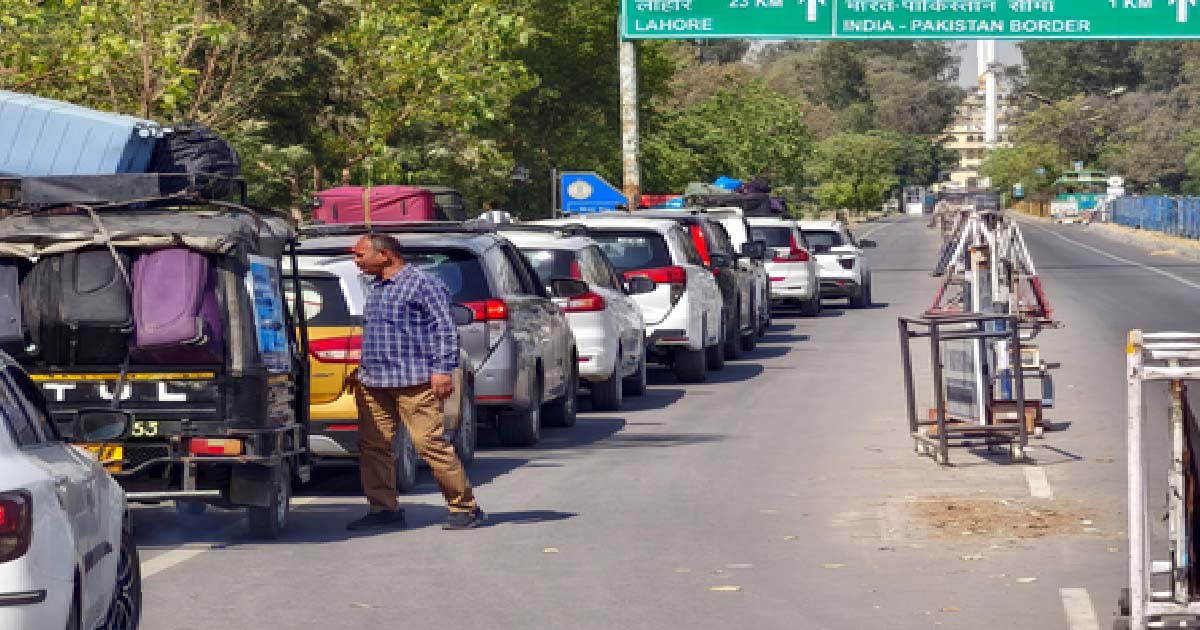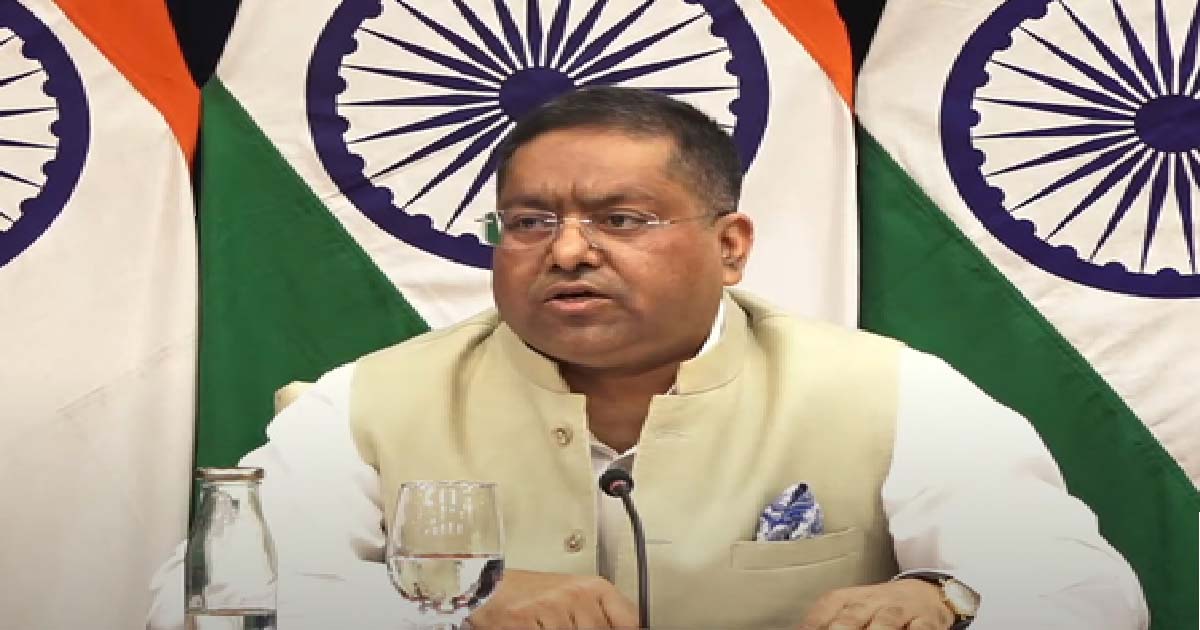International
IND v NZ, First Test: Patel picks five wickets to give India slight edge against NZ
Axar Patel’s incredible run in Test cricket at home continued with him picking his fifth five-wicket haul in just seven innings as India bowled out New Zealand for 296 in the first innings. Patel’s efforts of breaking the back of New Zealand’s innings meant that India took a 49-run lead, which eventually became 63 at stumps on day three at the Green Park Stadium on Saturday despite losing Shubman Gill cheaply.
Patel was a central figure in India bouncing back from an underwhelming day two to take the upper hand on day three. The spin troika of Patel, Ravichandran Ashwin, and Ravindra Jadeja spun a web around the New Zealand batters, taking nine wickets overall.
Patel’s show began in the post-lunch session, starting with taking out Ross Taylor and Henry Nicholls in quick succession. The left-arm spinner got a length delivery to turn and take the outer edge off Taylor’s bat on forward defence to substitute keeper KS Bharat (as Wriddhiman Saha had neck stiffness). He then returned in his next over to take out Nicholls, who missed the sweep and was rapped on the back pad. Nicholls reviewed the decision but couldn’t reverse it.
Latham, who was as solid as a rock, fell five short of his 12th Test hundred in a sudden rush of blood moment in the 103rd over. The left-hander came out to defend, but the inner edge rolled to Bharat, who kept his balance to complete the stumping, giving Patel his third wicket. In the final session of the day, Patel sneaked one past Tom Blundell’s defence to hit the stumps with low bounce. He then completed his fifth five-wicket haul in Test cricket by surprising Tim Southee with an angled-in delivery, which spun past the bat to leave the stumps shattered.
It was clear that handing Patel the second new ball from the other end worked wonders for India. He used the crease well, managed his pace, and used his round-arm deliveries to good effect in extracting some purchase from a slow pitch. He also got good help from Bharat, who took two catches and effected a stumping off his bowling.
Earlier, Ashwin was the first bowler to give India the breakthrough as Will Young (89) edged an outside off delivery, which kept low, with the outer edge snapped by Bharat taking a superb low catch in the 67th over. Ashwin almost had his second wicket in the 73rd over had India taken the review. The ace off-spinner got one to turn from leg-stump and rapped Latham’s pad in front of off-stump. Later, replays showed three reds, which meant a costly miss for India.
Kane Williamson was nervy against Ashwin but came out in full flow against Jadeja, smashing him for boundaries through cover and point. After taking the new ball, India were instantly rewarded with Williamson’s wicket at the stroke of lunch, as Yadav got a length ball to nip back in and rapped the right-hander on his back pad. Williamson reviewed but replays showed the ball hitting the top of the middle stump.
Debutant Rachin Ravindra looked good while striking Ashwin for boundaries but his promising stay at the crease ended with Ravindra Jadeja bowling him through the gate as New Zealand wobbled from 214/2 to 241/6. After Patel left the visitors reeling, Kyle Jamieson showed some resistance before miscuing a slog to Patel at deep mid-wicket off Ashwin in the 139th over. Four overs later, the off-spinner had William Somerville clean bowled to wrap up New Zealand’s innings.
Starting off the second innings with a 49-run lead, India lost their first wicket as Gill was clean bowled by an incoming delivery from Kyle Jamieson hitting the top of off-stump. The dismissal also made Jamieson the fastest New Zealand pacer to reach 50 Test wickets in nine innings, breaking former spee’ster Shane Bond’s record which, he had achieved in 12 innings.
Cheteshwar Pujara got some boundaries while Mayank Agarwal was cautious in taking India to safety till stumps were called, completing a day in which India have their noses ahead of New Zealand with two days left in the match.
Brief scores: India 345 (Shreyas Iyer 105, Tim Southee 5/69) and 14/1 in five overs (Cheteshwar Pujara 9 not out, Kyle Jamieson 1/8) against New Zealand 296 in 142.3 overs (Tom Latham 95, Will Young 89, Axar Patel 5/62, Ravichandran Ashwin 3/82), leading by 63 runs.
International
UNSC asks all countries to cooperate in bringing Pahalgam terrorists, backers to justice

United Nations, April 26: The Security Council has “condemned in the strongest terms” the Pahalgam terrorist attack and urged all countries to cooperate in bringing all those involved in the massacre, to justice.
The members of the Security Council “stressed that those responsible for these killings should be held accountable, and urged all States, in accordance with their obligations under international law and relevant Security Council resolutions, to cooperate actively with all relevant authorities in this regard”, Council President Jerome Bonnafont said in a Press statement on Friday.
A front organisation of the Pakistan-based terrorist group Laskhar-e-Tayiba has owned responsibility for the attack.
The statement issued by France’s Permanent Representative Bonnafont who is the Council president for this month, took a broad view of those involved in the massacre by including the financiers and sponsors.
“The members of the Security Council underlined the need to hold perpetrators, organisers, financiers and sponsors of this reprehensible act of terrorism accountable and bring them to justice”, the statement said.
Pakistan, which is on the Council as an elected member, went along with the other members in endorsing the statement, committing itself – at least on paper – to bringing those involved to justice.
A Press statement expresses the consensus of the Council and carries moral authority, while not being legally binding like a resolution.
The statement also shot down the attempts by some in Pakistan to give terrorist attacks a veneer of justification.
“The members of the Security Council reiterated that any acts of terrorism are criminal and unjustifiable, regardless of their motivation, wherever, whenever and by whomsoever committed”, it said.
The Council members “reaffirmed the need for all States to combat by all means, in accordance with the Charter of the United Nations and other obligations under international law, including international human rights law, international refugee law and international humanitarian law, threats to international peace and security caused by terrorist acts”, the statement added.
Earlier, the spokesperson for Secretary-General Antonio Guterres hinted that a diplomatic effort by him may be afoot.
Asked by a reporter, if Guterres would speak to leaders of India and Pakistan, Spokesperson Stephane Dujarric said that he hoped to have something to share on that later.
Reiterating the condemnation of the terrorist attacks, Dujarric said, “We again urge both the Government of India and the Government of Pakistan to exercise maximum restraint to ensure the situation does not deteriorate further.”
When a reporter asserted that the possibility that “two nuclear countries” might “go to war” was getting insufficient attention, Dujarric said, “I don’t agree with your comment. We are paying very close attention to the situation between India and Pakistan.”
International
Wagah-Attari border closure leaves several families in limbo

Islamabad, April 25: Pakistan and India’s decision to shut down the Wagah-Attari border crossing after the deadly Pahalgam terror attack has forced several citizens from both countries to cut short their visit and rush back home.
On Thursday, after both countries announced closure of border crossing and gave a deadline for citizens to leave for their respective countries, at least 28 Pakistanis nationals returned from India while 105 Indian citizens in Pakistan crossed over into India.
A Hindu family from Balochistan’s Sibi was reportedly denied entry into India after the closure of border crossing.
“We were on our way to Indore in Madhya Pradesh to attend a wedding. Seven members of our family were excited to join our relatives in India and take part in the celebrations. But upon reaching Wagah, we learned that the border had been sealed. We will spend the night at Dera Sahib in Lahore and head back home tomorrow,” said Akshay Kumar.
Meanwhile, a Sikh family from India, in Pakistan to attend a wedding, decided to leave for India immediately.
“We had come to Pakistan for a wedding. While the ceremony took place, several important rituals remained. Once we heard the border was closed, we decided to return immediately,” said Raminder Singh, an Indian national.
A Hindu family from Ghotki in Pakistan’s Sindh province, now residing in New Delhi, was visiting Pakistan for the last two months to meet their relatives. However, they are now unsure about getting permission to return to India.
“There are five of us, including my young son and daughter, uncle and aunt. We all hold Pakistani passports and were granted No Obligation to Return to India (NORI) certificate by India. But uncertainty looms now, said a family member named Indira.
“Families with cross-border ties often bear the brunt of rising tensions between the two neighbours. With tensions between Pakistan and India once again on the rise, human connections across borders are becoming the first casualty,” said Asif Memood, a Lahore-based journalist.
“The closure of the Wagah-Attari border has left many families in limbo, uncertain when they will next reunite with their loved ones,” he added.
International
Murder of Hindu leader: India slams Bangladesh, says killing follows pattern of systematic persecution of Hindu minorities

New Delhi, April 19: India on Saturday issued a sharp condemnation of the abduction and brutal killing of Bhabesh Chandra Roy, a prominent Hindu community leader in northern Bangladesh, calling it part of a “pattern of systematic persecution” of minorities under the country’s interim government.
Ministry of External Affairs (MEA) spokesperson Randhir Jaiswal voiced India’s grave concern, stating that the incident reflects an alarming trend of targetted violence against Hindus and other minority groups in Bangladesh.
“We have noted with distress the abduction and brutal killing of Shri Bhabesh Chandra Roy, a Hindu minority leader in Bangladesh. This killing follows a pattern of systematic persecution of Hindu minorities under the interim government, even as the perpetrators of previous such events roam with impunity,” Jaiswal said in a post on social media platform X.
He added, “We condemn this incident and once again remind the interim government to live up to its responsibility of protecting all minorities, including Hindus, without inventing excuses or making distinctions.”
India has previously expressed similar concerns over rising attacks on minorities in Bangladesh, but this latest incident has drawn particular attention due to Roy’s prominence in the Hindu community.
Roy, who served as the Vice-President of the Biral unit of the Bangladesh Puja Udjapan Parishad, was abducted from his residence in Dinajpur district on Thursday evening. According to police and family accounts, he received a phone call around 4:30 p.m., after which four unidentified men arrived on motorcycles and forcibly took him to Narabari village. He was reportedly assaulted and later found unconscious. He was rushed to a hospital in Dinajpur, where he was declared dead on arrival. His wife, Shantana Roy believes the attackers used the call to confirm his location before carrying out the abduction.
Opposition leaders in India also slammed the shocking incident in the neighbouring country.
Congress President Mallikarjun Kharge highlighted that religious minorities, especially Hindus, are being persecuted in Bangladesh.
“Attacks on other religious minorities are also continuing. Recently, the Chief Advisor of Bangladesh made a very condemnable and disappointing comment about the northeastern states of India. The persecution of religious minorities in Bangladesh, human rights violations, and the attempt to erase the memories of the 1971 Liberation War are efforts to weaken the relationship between India and Bangladesh. From 1971 till today, India has always wished for peace and prosperity for all the people of Bangladesh. This is in the best interest of the subcontinent,” he said.
-

 Crime3 years ago
Crime3 years agoClass 10 student jumps to death in Jaipur
-

 Maharashtra1 year ago
Maharashtra1 year agoMumbai Local Train Update: Central Railway’s New Timetable Comes Into Effect; Check Full List Of Revised Timings & Stations
-

 Maharashtra1 year ago
Maharashtra1 year agoMumbai To Go Toll-Free Tonight! Maharashtra Govt Announces Complete Toll Waiver For Light Motor Vehicles At All 5 Entry Points Of City
-

 Maharashtra1 year ago
Maharashtra1 year agoFalse photo of Imtiaz Jaleel’s rally, exposing the fooling conspiracy
-

 National News1 year ago
National News1 year agoMinistry of Railways rolls out Special Drive 4.0 with focus on digitisation, cleanliness, inclusiveness and grievance redressal
-

 Maharashtra1 year ago
Maharashtra1 year agoMaharashtra Elections 2024: Mumbai Metro & BEST Services Extended Till Midnight On Voting Day
-

 National News1 year ago
National News1 year agoJ&K: 4 Jawans Killed, 28 Injured After Bus Carrying BSF Personnel For Poll Duty Falls Into Gorge In Budgam; Terrifying Visuals Surface
-

 Crime1 year ago
Crime1 year agoBaba Siddique Murder: Mumbai Police Unable To Get Lawrence Bishnoi Custody Due To Home Ministry Order, Says Report
















